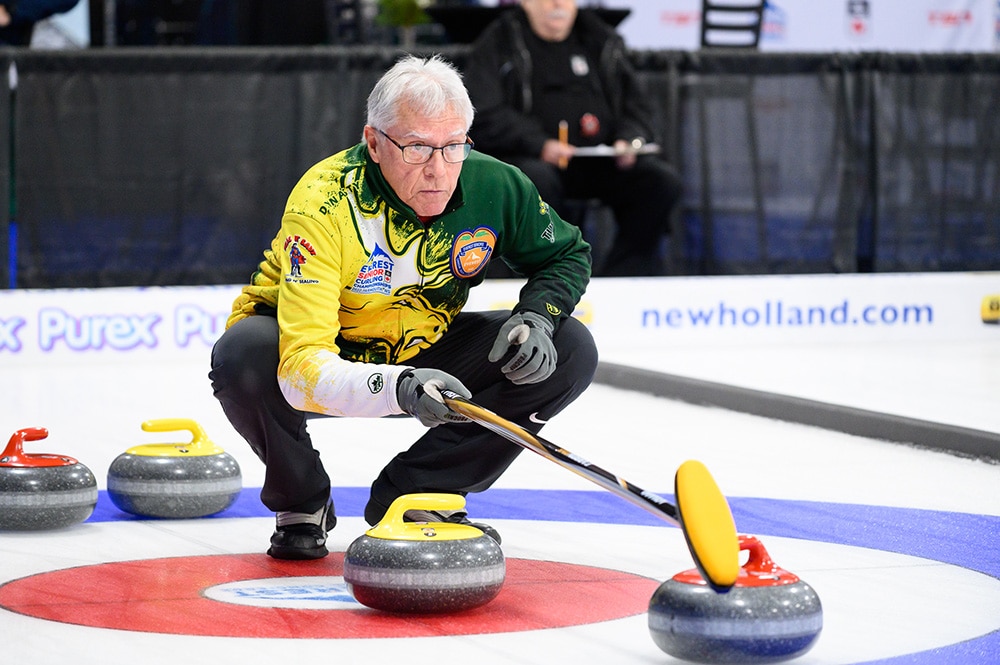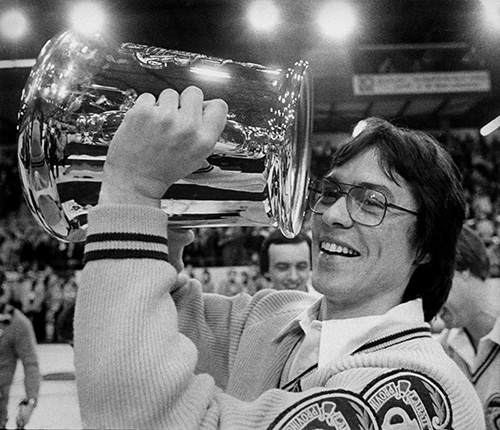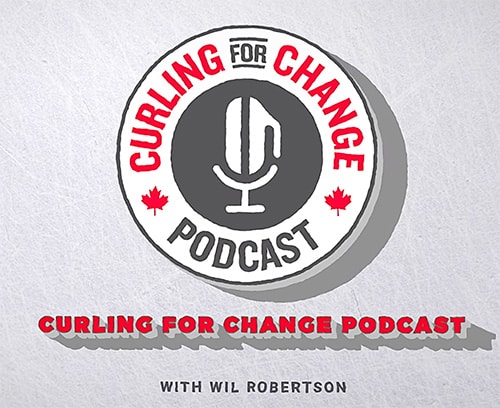
The Curling for Change Podcast and Al Hackner discuss the reality of curling for Indigenous peoples
By: Gillian Kent
In the lead-up to the curling season, Curling Canada published the Curling for Change podcast, hosted by Will Robertson, winner of the 2022 Fran Todd All Heart Award and sponsored by the World Curling Federation.
Each podcast invited well-known members of the curling community to discuss specific areas of diversity, equity and inclusion that were also personal to them. While there were questions and topics prepared to guide the discussion, Will made it clear from the beginning that he wanted each guest to feel comfortable sharing their own stories.

“I just want to say that I’m really grateful to everyone who took part. It took a lot of trust and leaps of faith for people to be as open and vulnerable as they are,” Will said, also highlighting that this is not something that is often seen in the world of sports. Which perhaps It gave the discussions greater impact overall.
Although up to 16 topics were suggested at the beginning of this project, it was narrowed down to a handful of topics that became the current podcast series, all of which have now been released on curling canada+.
In the latest episode, Will sat down with Kerry Einarson (Métis) and Kerry Galusha (Gwich’in) to discuss their own experiences as Indigenous curlers and the ways curling in Canada must evolve to provide more space for Indigenous peoples. This was one of the topics Will knew he wanted to address from the beginning, as Indigenous communities are underrepresented not only in curling but in all sports across Canada.
Al Hackner (Ojibwa) has long been a leader in the curling community. Inducted into the Canadian Curling Hall of Fame as a curler and as part of a team, Al is a two-time Brier champion as well as a champion at the senior and masters levels. With a competitive career spanning nearly 40 years, Al has earned respect within and beyond the curling community. Although he was invited to participate in the Curling for Change Podcast, there was a scheduling conflict.
Al admits to thinking of himself as “just a curler first”; It wasn’t until later, as he got older and saw more of the impact of his role as a prominent Indigenous figure in curling, that he began to realize the importance of being an “Indigenous curler” as well.
“There was a lot of pride,” Al noted, reflecting on how his trip affected Indigenous communities’ feelings about curling. “You know, it was like when Canadians watched Mike Weir win (the 2003 Masters) — that ‘one of us’ feeling. [has succeeded]”.
Indigenous representation is important, because moments like Hackner’s — where they see themselves succeeding somewhere and being welcomed — indicate that there is space for them to participate and succeed as well. If you don’t see yourself somewhere, the default assumption is that it’s not somewhere you’re welcome.
While Al is proud of his history on the public stage, and that pride he has created for some in the Indigenous community, he is truly passionate about Northern Ontario’s indigenous mixed bonspiel, of which he has been a part, both as a player and organizer, for 20 years. Although bonspiel started out slow, it has seen a lot of success and growth over the years.

Northern Ontario’s original three-day Bonspiel program is open to everyone of any skill level and brings together people from all the small and often isolated communities across Northern Ontario for three days of fun and connection. As Al pointed out, it can be very difficult to get into a competitive environment in a sport you’ve never played before. To ease that transition, bonspiel has a range from beginners to those with some curling experience, and hosts clinics before starting to provide instruction and guidance to anyone who may need it. Over the years, they have also modified the draw, reducing the traditional “competitive” dynamic to instead promote community and support.
The original mixed bonspiel in Northern Ontario had its greatest success when organizers created a format that included each team still playing on the final day of competition and ensured everyone received a prize, something not always seen, even in recreational curling.
By removing the concepts of rankings (elevating the best two or three teams from the remaining pool), the organizers saw a positive response from all participants. Many who had some curling experience expressed their excitement to continue playing on the final day of competition, having never had that opportunity before. No matter where they are, everyone feels proud to have won something; They came back from the day feeling successful and truly enjoyed their experience, rather than frustrated that they weren’t “the best.”
It is this joy and pride that accounts for the success of bonspiel growth over the years. Not only do participants go home to tell their friends and family what a great time they had, thus bringing more of them with them into the coming year, but many of them have created lifelong friendships with others from communities they may not have had contact with before. Al made a point of mentioning the small Armstrong community that in the past has brought almost everyone in their community into the game.
While Al is always happy to talk about Indigenous participation in the sport of curling, he makes a point to emphasize that these are the conversations we need to continue to have and the actions we need to continue to take.
“Many feel not included or unwelcome; we need to keep iterating [those kind actions]“They keep saying it and showing that they are,” he said.
This is a sentiment echoed by the Curling for Change podcast. Over the course of the discussion, each guest provided small, manageable actions that each listener could take on their own. Discussions and creating awareness are great, but action is necessary to move anything forward. One of the best ways to grow is to jump in and move forward. As Will said, these podcasts came from an idea he had in the shower. If he can do it, anyone else can do it.
You can find all the podcasts, including the latest podcast with Kerri Einarson and Kerry Galusha on Curling Canda+, Youtube, or wherever podcasts are available.






